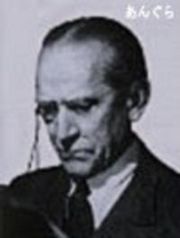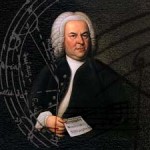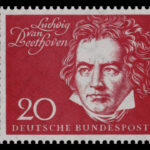Canteloube (1879-1957) was born in the Ardèche region in southern France. Early on he showed a proclivity for musical composition and eventually studied in Paris.
While he composed two operas and a number of other works, he is best known today for his settings of French folk songs, particularly those from the Auvergne region in south-central France, a rural and mountainous region. He arranged six “series” or books of these songs; the ones we’re performing today have been selected from books 1-4, composed in the 1920s. They can be sung either in the “Auvergnat” dialect (based on the medieval Occitan language — the “langue d’oc”), or in French. We’ve chosen to perform them in Auvergnat because its piquant flair fits so well with the music.
The songs themselves feature mostly country themes — a shepherd pleading with a shepherdess to come to him over the river, pledging to her his devoted love (Pastourelle); a girl’s scornful rejection of a hunchback’s offer of love (Lou Boussu); a haunting duet sung by a shepherdess and shepherd, echoing across the mountains — the shepherd finally promising to cross the river to her (Bailèro); a warning that drinking spring water is fatal — a maiden should drink wine instead, especially if she wants to get married (L’Aïo de Rotso); let’s find a meadow to graze our flocks and make love (Ound’ Onorèn Gorda?); and a hymn of praise to the beautiful girls, and to the gallant and faithful men, of the Auvergne (Obal din lou Limouzi).
Songs of the Auvergne
By Joseph Canteloube






